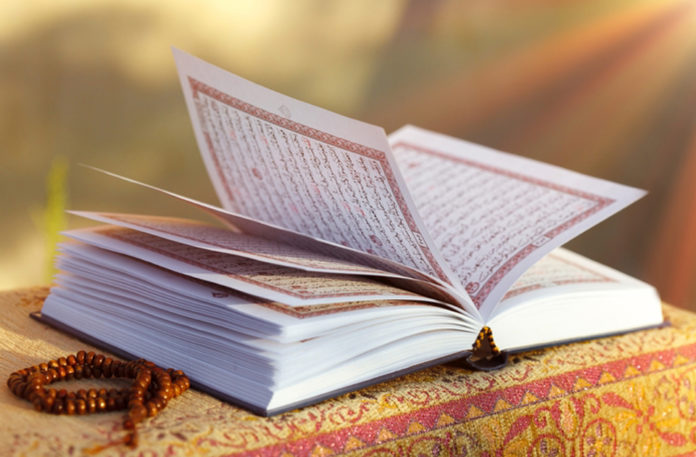There are two calamities when the true scholars of Islam pass away: firstly is the immediate loss of the individual from whom one can now not benefit from, seek advice from, obtain solutions to our problems and likewise. The second calamity is that the sacred knowledge running through the veins of such people is lost and passes away with its carrier. With the death of the‘ulemâ, we lose a portion of the legacy of Muhammad (sallallahu ‘alayhi wa sallam) for as he said,“the scholars are the inheritors of the Prophets.”
It becomes a far greater tragedy when the scholar in question is from the erudite masters of knowledge; those whose mention in the lands is widespread and whom our times simply cannot replace.
Sheikh Abdul Qadir al-Arna’ut (rahimahullah), the great ‘Alim and Muhaddith of Syria passed away on the 26th of November 2004 corresponding to the 13th of Shawwâl 1425 on Friday morning at his home in Damascus. His funeral prayer was held after the Jumu’ah prayer at the Zayn ul-‛آbideen mosque in Maydân, Damascus, attended by tens of thousands of people. He was 78 years old.
Sheikh Abdul Qadir was born in Kosovo, Albania at a time where the Serbian oppression against the Muslims was continuing unabated. He emigrated at the age of just three with his father and family to Damascus where he started to learn Arabic and the sacred Islamic sciences. As with many of the great scholars in history, his parents who had a love and concern for Islamic knowledge allowed Sheikh Abdul Qadir to continue studying all the way through his early years. Studying under a variety of the great Qur’ân, Hadîth, and Fiqh scholars of his time, he was able to achieve a very high level in sacred transmitted knowledge.
The Sheikh’s particular great love and concern was for the science of Prophetic narrations, and in fact was considered by major scholars to be one of the world’s top five Muhaddithîn ( Hadîth masters). His students relate how much care he would take over the statements of the Prophet ( sallallâhu ‘alayhi wa sallam), always quoting a complete chain of narration (sanad), giving its level of authenticity and always narrating by the exact words and not just by meaning as has become common amongst those less versed in this field.
The Sheikh will be most remembered for his tahqîq or ‘science of verifying authentication’. This is when a scholar who has mastered the sciences is able to check and review a piece of work, such as a collection of hadîth, and then able to reference every single hadîth, ayah or statement, giving its exact location as well as more importantly giving a legal verdict on its authenticity i.e. whether it is weak, rejected, fair, or authentic etc. By the mercy of Allah, the Shaykh has left behind over 50 works that he has made tahqîq of, the most famous of them being the encyclopaedic work of Imâm ibn al-Athîr, Jâmi’ al-Usûl. Others include the magnificent Zâd al-Ma’âd of ibn al-Qayyim, Zâd al-Masîr fî ‘Ilm at-Tafsîr by ibn al-Jawzi, al-Adhkâr by an-Nawawi, al-Kâfi by Muwaffaq ud-Dîn al-Maqdisi and other books that are far too many to mention.
His skill in authentication and verification was such that many of the senior students of knowledge in this field would consider the Sheikh’s decision on a hadîth as a final standard. This is how Allâh jalla wa ‘alâ writes acceptance for the ones He loves.
He was well known to his contemporaries, such as the late Muhaddith Sheikh al-Albani ( rahimahullah) in which he shared the tahqîq of Mishkât al-Masâbîh, even though they differed with each other over many issues, as scholars often do. Naturally, as an‘Alim, he was well able to respect and praise al-Albâni and vice versa, helped no doubt by the long hours they shared together verifying hadîth in a special room dedicated to the Muhaqqiqîn in al-Maktabah al-Islâmiyyah. In fact it is reported that al-Albani was asked from whom they should take the final word on hadîth if he was to pass away, to which the Shaykh replied, “Abdul Qadir.”
But it was his formidable partnership with the only remaining one of these three hadîth scholars, Sheikh Shu’ayb al-Arna’ût ( hafidhahullâh) that produced the most beneficial fruits. How sad it is to see the science and its masters falling one by one, leaving us to struggle in their wake. May Allah preserve the Muhaddithîn and their science, Amîn!
Shiekh Abdul Qadir’s love for da’wah was well known. Coming from a foreign country, he was often encouraged to travel there, teaching them their religion and advising them in their matters. The late Mufti ‘Abdul ‘Azîz ibn Bâz ( rahimahullah) was one in particular who encouraged the Sheikh to benefit others through his excellent oratory skills and his fluency in native Albanian. His last visit to Kosovo was three years ago.
In fact, it was his reputation as a Khatîb in various Syrian mosques that really endeared him to the masses. His interactions with his students and community were that of a friend and fatherly figure, and not just as their senior spiritual guide. Once, his neighbour in Damascus brought his new born baby daughter to the Sheikh for tahnîk (where the baby’s mouth is sweetened with dates etc, pulped by the teeth of the Sheikh for blessing) and the Sheikh then made a Du’â to Allâh so that she would be blessed in her life. Indeed she was and the du’â came true as the Sheikh actually ended up marrying her many years later!
His famed oratory skills matched by a unique and sincere concern for his people, often led him to speak his mind, never fearing the authorities or oppressors. Naturally, the government attempted to restrict his life as much as possible and the Sheikh had suffered much difficulties at their hands, being banned many times from lectures and teaching, and then being placed under house arrest for no other crime but speaking the truth. He was touched by personal tragedy too with the death of his first wife Umm Mahmûd ( rahimahallâh), the death of many of his 18 children whilst they were very young as well as the death of his 17 yr old son Bilal in a car crash. Above and beyond all that, he was extremely sensitive to the affairs of the oppressed Muslims worldwide.
In fact, the Muslims suffering oppression at the hands of their own governments or those of other occupying powers have not had such support from a scholar for as long as one can remember. The Sheikh was very adamant of the need to defend the blood, wealth and honour of the Muslims, in particular the Palestinians, for whom he wrote many fatâwa, supporting their struggles and also the controversial matter of al-Amalîyyât al- Istishâdîyyah (martyrdom operations).
In many of his own rulings as well as writing introductions for other research papers on the same subject, he bravely praised these actions, supporting them with a plethora of evidences from the Qur’an, Sunnah and the actions of the early generations. This, in an age of increasing pressure from not only the Western and the Arab governments, but many scholars who still push the idea that such actions are absolutely impermissible. Such intellectual terrorism is affecting the mindsets of many, and that is why the loss of the Light of Damascus, Sheikh ‘Abdul Qadir, will leave our nation in a greater state of chaos and confusion. For indeed, the death of the Sheikh is not like the death of a normal man, and how true is the statement of ‘Umar ( radhy Allahu ‘anhu) when he said,“the death of the ‘Alim is equal to the death of a thousand worshippers”.
The Sheikh went to sleep on Thursday night, the 13th of Shawwâl, in good health. His wife came to wake him for Fajr salâh but there was no response. When she tried again, she saw sweat on his forehead, and she realised that he had left this world to meet his beloved Lord. Wa Allahu Musta’an, wa innâ lillâhi wa innâ ilayhi râji’ûn.
He leaves his priceless library of books and manuscripts to the Islamic Open College in Damascus, which was originally founded by his own Sheikh Sâlih al-Farfûr ( rahimahullah).
We believe and expect the best of conclusions for the Sheikh ( rahimahullah) as he passed away after completing the month of Ramadhân fasting, the witnessing of sweat on the brow at the time of death, and on the day of Jumu’ah. Excellent signs indeed!
O Allâh, shower our Sheikh with your immense Mercy, forgive all his mistakes and enter him into the highest part of Paradise with You, Amîn.
Sheikh Abdul Qadir is survived by his second wife, eight sons and three daughters.
– Sheikh Abdul Qadir al-Arna’ut was born c1928. He died on the 26th of November, 2004.






















